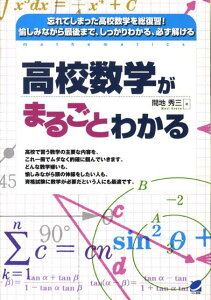Now, prove the following equation with Mathematical Induction.
$$ sum _{k=1}^{n} k = frac{1}{2} n (n + 1) $$Proof
When ( n = 1 )
The left hand is 1, the right hand is ( frac{1}{2} 1 ( 1 + 1 ) = 1 ) . Then the equation is true.
Suppose Equation in ( n = m )
Suppose equation in the condition, ( n = m ) .
In the condition, ( n = m + 1 ), the left hand minus the right hand is
begin{eqnarray*} textrm{(LH)} – textrm{(RH)} & = & sum _{k=1}^{m + 1} k – frac{1}{2} ( m + 1 ) (m + 1 + 1) \ & = & sum _{k = 1}^{m} k + m + 1 – frac{1}{2} m ( m + 1 ) – ( m + 1 ) \ & = & m + 1 – ( m + 1 ) \ & = & 0 . end{eqnarray*}Thus, the equation is true in the condition ( n = m + 1 ) .
This equation is 書籍 代数系入門 (松坂和夫) でも練習問題として取り上げられています。
And in the article ( k^n ) の総和 公式の導出, I introduce the above equation in another way.






